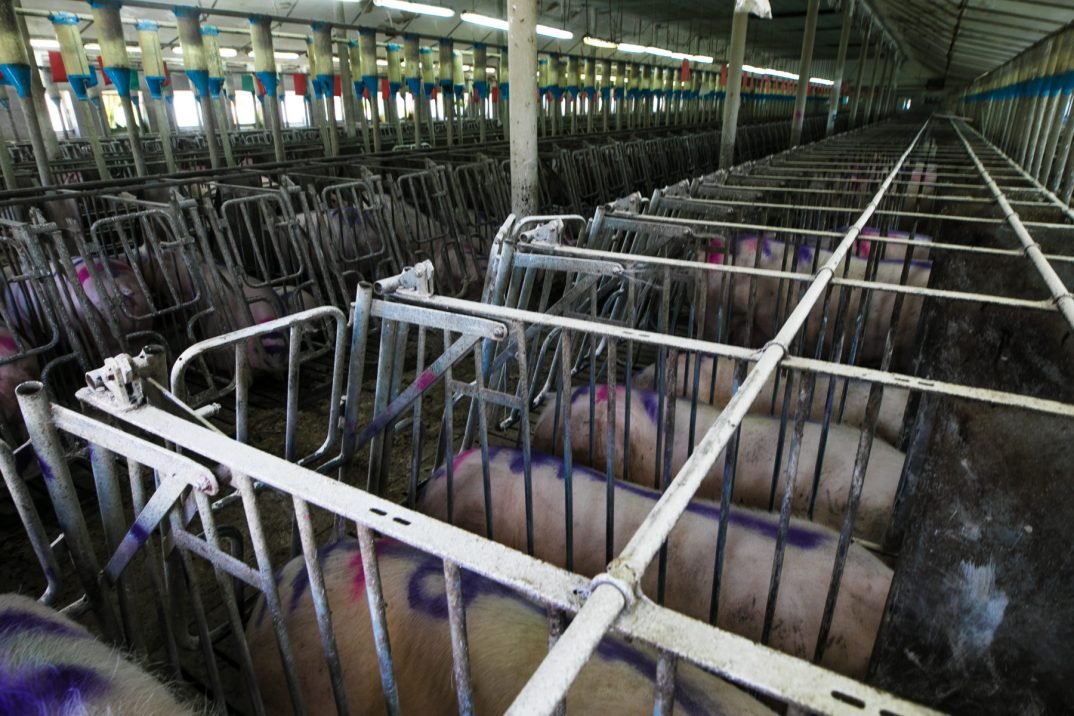Scientists Call for an Urgent "Move Away From Factory Farming" Amid Bird Flu Pandemic
A highly pathogenic strain of avian flu broke out last year and has so far led to the deaths of 86 million birds in the US and Europe alone.
Seabird populations in breeding colonies across Europe, North America and Africa are being decimated by the avian influenza, prompting wildlife scientists to urge countries to ‘move away from factory farming’.
The highly pathogenic avian flu (HPAI) originated from a goose farm in China back in 1996. In the decades since, the virus has killed millions of poultry, spilling into wild bird populations in 2007.
In Spring 2021, a disturbingly transmissible strain of the virus mutated and began to spread rapidly, affecting 37 European countries, before crossing the Atlantic Ocean for the first time as birds migrated to North America.
This major outbreak has so far led to the deaths of 86 millions birds in the US and Europe alone, largely through culling as farmers attempt to contain the pandemic. Seabird mortalities are also particularly high as they live together in tight colonies.
Nearly 400,000 wild bird deaths have been caused by the virus since October 2021, according to the World Health Organization - a figure that may be a lot higher because of the barriers to tracking dead birds.
Factory farms: a breeding ground for pandemics
Disposing birds killed by the avian flu. Photo: Andrew Skowron
Intensive farming has skyrocketed over the decades, as wealthy countries, with rapidly growing populations, continue to demand cheap meat and other animal products. Fifty years ago, the global population of poultry was 5.8 billion. Today, that number is five times higher at 36 billion. For context, there are an estimated eight billion people currently living on the planet. The population of pigs has nearly doubled from 547.17 to 952.63 million, while the number of cows has increased from 1.08 to 1.53 billion.
The cramped, filthy farming conditions are breeding grounds for viruses and mutations, risking spillovers of disease into wild bird populations where the spread is hard to stop.
“These large livestock populations, which are connected through trade, form reservoirs where infectious diseases can evolve and spill over into wildlife, occasionally with devastating consequences,” wrote Thijs Kuiken, professor in the department of viroscience at Erasmus University Medical Center, Rotterdam, and lead author of the editorial published in Science.
Kuiken also called the HPAI outbreak in seabirds “a warning, with devastating consequences if not heeded."
The African swine fever virus is another deadly disease that has spread across Europe and Asia since 2008 through the international trade of pigs and pigmeat products, spilling over into wild boar and threatening endangered species of wild suids in Southeast Asia.
Credit: Andrew Skowron
Other spillovers include Mycoplasma gallisepticum bacteria from poultry to house finches and other songbirds in North America, and Mycobacterium bovis bacteria from cattle to wild mammals worldwide.
The study’s authors warn that countries must enact policies to prevent the spread of these wildlife diseases caused by farming animals for food. Preventive actions suggested include reducing livestock herd sizes and densities of farms, limiting the transport of livestock among farms, and restricting contacts between farmed animals and related wild species. Alongside these measures, middle-and high-income countries must transition to plant-based proteins to reduce the demand for meat, dairy and eggs.
Human transmission
Although human transmission is low, with 456 deaths reported to the World Health Organization since 2003, emerging viruses are increasingly a threat to public health. 75 percent of new infectious diseases that appeared in the last three decades came from animals.
“We’re knowingly risking our own lives by allowing this kind of system to continue as it is”, Kuiken told New Statesman.
When the COVID-19 pandemic started, Humane Society International (HSI) released a white paper urging for an end to raising animals for food.
“Since news broke that COVID-19 likely originated in a live animal market where stressed animals are crowded in cages, in unsanitary conditions, we began examining what other human exploitation of animals could create a similar petri dish of disease,” said Julie Janovsky, HSI Vice President of Farm Animal Campaigns.
“It’s clear looking at the data that the unprecedented increase and expansion of intensive animal agriculture, mostly on factory farms, in which we raise and slaughter more than 80 billion animals around the world every year, is a clear front-runner.
“The message is simple: if we want to stop future pandemics, we have to significantly kick the meat habit, and global leaders need to actively assist in shifting global diets towards more plant-based eating.”
What we think, wear and eat matters: transition to a plant-based lifestyle today by signing up for the Species Unite 30-Day Vegan Challenge. Take part any day in October to receive 30 days of tips, recipes, and support sent straight to your inbox. Take part here!
We Have A Favor To Ask…
Species Unite amplifies well-researched solutions to some of the most abusive animal industries operating today.
At this crucial moment, with worldwide momentum for change building, it’s vital we share these animal-free solutions with the world - and we need your help.
We’re a nonprofit, and so to keep sharing these solutions, we’re relying on you - with your support, we can continue our essential work in growing a powerful community of animal advocates this year.
More stories:
Species Unite
A collection of stories of those who fight the good fight on behalf of animals.







Meat giant JBS USA misled consumers with fake sustainability claims to boost sales, the lawsuit alleges.